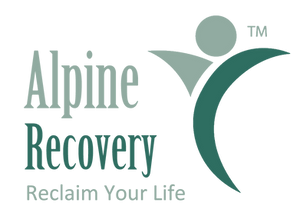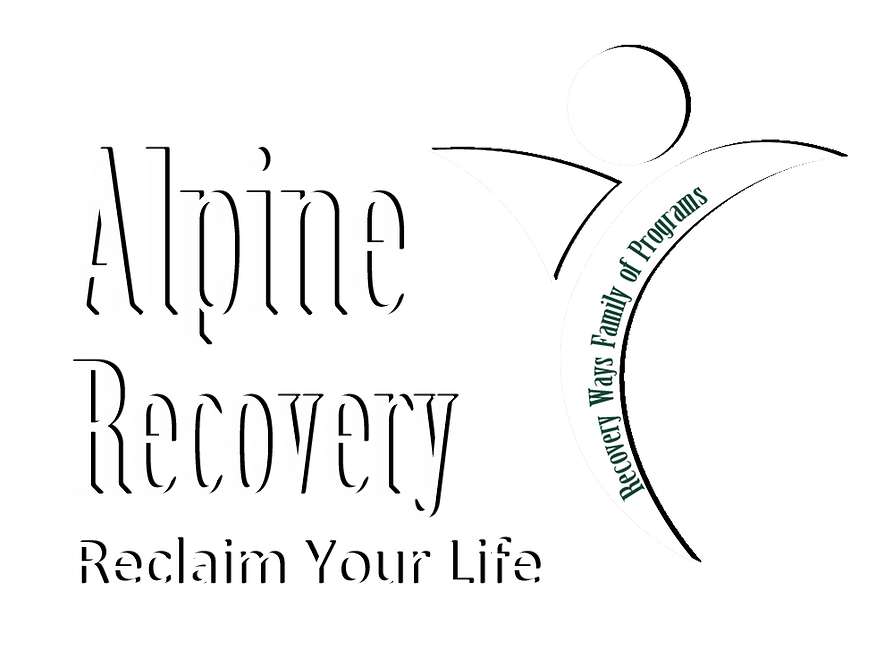Best Alcohol Rehab Everett
Exploring the Best Alcohol Rehab Options in Everett
When seeking the best alcohol rehab Everett has to offer, individuals should consider a range of factors. Each rehabilitation facility offers unique services, amenities, and approaches to treatment. It is essential to explore various options to find a program that aligns with personal recovery goals and needs.
Alpine Recovery stands out due to its serene location and comprehensive care plans. Clients benefit from both traditional treatments and holistic approaches aimed at achieving long-term sobriety. This facility, like many others in the region, ensures a supportive community and peer interaction, which are crucial for recovery success.
Additionally, insurance types, payment plans, and facility accreditations such as Joint Commission or CARF are vital considerations. This ensures the treatment is financially accessible and of the highest quality.
The Importance of Personalization in Rehab Programs
One of the crucial elements in finding the best alcohol rehab Everett residents can rely on is personalized care. Different individuals may have varying triggers, underlying issues, or co-occurring conditions that contribute to their addiction. Personalization in rehab programs ensures that these unique factors are addressed.
Alpine Recovery excels in crafting tailored treatment plans that consider each client’s specific background and needs. The inclusion of individualized therapy sessions, group therapy, and family counseling are some of the personalized elements that enhance recovery. Personalized care not only improves the chances of recovery but also supports mental health and well-being.
Benefits of Holistic Treatments in Alcohol Rehab
Holistic treatments are becoming increasingly popular in alcohol rehab programs for their ability to treat the whole person–mind, body, and spirit. Facilities like Alpine Recovery incorporate such elements into their treatment programs to promote comprehensive wellness.
Options such as mindfulness practices, nutritional education, and exercise programs help rehabilitate the body while fostering emotional and psychological healing. Clients can find solace and balance, essential components in maintaining sobriety. These holistic methods complement traditional therapy sessions, providing a rounded approach to overcoming alcohol addiction.
Furthermore, the implementation of meditation and yoga can assist individuals in managing stress and anxiety, common triggers for relapse. By nurturing the soul through creative outlets like art or music therapy, a sense of inner peace is often achieved.
Financial Aspects and Accessibility of Rehab Services
Finances often play a significant role when selecting the best alcohol rehab Everett has to provide. Understanding the financial options available, including health insurance, Medicaid, and payment plans, is crucial for accessing the necessary care.
Alpine Recovery and similar facilities offer various means to alleviate financial burdens, such as sliding scale fees based on income or scholarships for those in dire need. Individuals without insurance can explore state-funded programs or facilities with funding through government grants to cover treatment costs.
The Role of Community Support in Recovery
Community support forms the backbone of many successful rehabilitation programs. Establishing connections with peers who understand similar struggles can empower and motivate individuals to stay committed to their recovery journey.
Alpine Recovery emphasizes the importance of community by fostering a supportive environment where individuals can share experiences and learn from one another. This approach helps to build trust and camaraderie, offering a comforting buffer against isolation and relapse.
Choosing the Right Treatment Facility
Selecting the best alcohol rehab Everett has available involves thorough research and consideration of various treatment programs. Potential clients should assess whether a center offers both inpatient and outpatient services, which can be pivotal depending on the severity of the addiction.
The setting of the facility, whether urban or rural, can also impact the recovery experience. Alpine Recovery, for example, offers a calming locale away from the chaos of daily life, promoting a peaceful and distraction-free environment conducive to healing.
The Integrative Spectrum of Rehab Services
A comprehensive approach to rehabilitation involves a spectrum of services that address various aspects of addiction. Facilities like Alpine Recovery include detoxification, which is the first and most daunting step for many. This process requires medical supervision to ensure safety and comfort.
Subsequent services may incorporate individual therapy to explore personal issues related to addiction, while group therapy offers a platform for shared learning and expression. Family counseling is equally important, repairing strained relationships and educating loved ones about the recovery process.
Aftercare and Ongoing Support
Post-rehabilitation support is a critical component of lasting recovery. The best alcohol rehab Everett programs include robust aftercare planning to guide clients once they have completed primary treatment. This phase often involves outpatient services, ongoing counseling, and support group participation.
Alpine Recovery ensures that every individual leaves with a well-structured aftercare plan tailored to their needs. By maintaining consistent support through professional and peer interactions, clients can build resilience against potential triggers and prevent relapse.
Success Stories and Real-life Experiences
Shared Journeys to Sobriety
Hearing about others’ recovery journeys often inspires those contemplating or undergoing treatment. Facilities like Alpine Recovery share success stories that highlight diverse paths to sobriety. These narratives provide insight into the challenges faced and the triumphs achieved, emphasizing the transformative power of comprehensive care.
Anecdotal Evidence and Insights
Professionals within the industry frequently share anecdotal stories that shed light on the range of experiences encountered during recovery. These real-life insights, often shared by therapists and counselors, can offer prospective clients encouragement and a realistic perspective of what to expect.
Positive Reinforcement and Motivation
The positive reinforcement found within shared success stories serves as a powerful motivator, reminding individuals that recovery is achievable. By fostering a community where stories are shared and celebrated, facilities like Alpine Recovery create an atmosphere of hope and determination.
What is the most popular program for recovering alcoholics?
When it comes to alcohol recovery, the 12-Step Program is often regarded as one of the most popular and widely recognized methodologies. This program, famously founded by Alcoholics Anonymous (AA), emphasizes peer support, personal accountability, and spiritual growth as integral components of recovery. At Alpine Recovery, we incorporate elements of the 12-Step Program alongside a diverse range of therapies to ensure a holistic treatment plan. Our clients often find value in the shared experiences and the sense of community that the 12-Step meetings provide. However, it’s important to remember that the best program truly depends on an individual’s unique needs and circumstances. Have you considered what kind of program might align best with your personal recovery goals?
What is the success rate of treatment for alcoholism?
Measuring the success rate of alcoholism treatment can be complex, as it often involves various metrics such as sobriety duration, improved quality of life, and mental health outcomes. Nationally, studies suggest that around 40-60% of individuals who undergo treatment remain sober for an extended period. At Alpine Recovery, we focus on creating personalized treatment plans that are designed to improve these odds by addressing each client’s unique challenges and strengths. While data provides a general framework, the success of recovery is also deeply personal and subjective, often requiring ongoing effort and support. What changes in your life are you hoping to achieve through sobriety?
What are the struggles that an alcoholic has in rehab?
Individuals in rehab may face a variety of challenges, such as dealing with withdrawal symptoms, confronting personal issues, and resisting the temptation to relapse. At Alpine Recovery, we support our clients through these struggles by providing medical supervision during detox, personalized therapy sessions to tackle underlying issues, and skills training to cope with cravings and stress. Many clients also struggle with the emotional aspect of leaving their old life behind and forging a new path. We strive to create a nurturing environment where these struggles can be openly discussed and managed. Have you thought about what coping strategies you might find helpful in such situations?
Is sober living the same as rehab?
While sober living and rehab share the goal of helping individuals achieve long-term sobriety, they serve different purposes. Rehab is typically a more intensive, structured environment that offers medical supervision, therapy, and various treatment programs tailored to overcome addiction. In contrast, sober living homes are less structured environments that provide a supportive space for individuals transitioning from rehab back into everyday life. At Alpine Recovery, we offer comprehensive aftercare plans that may include recommendations for sober living arrangements, as they can play a crucial role in maintaining sobriety after completing a rehab program. Are you considering any particular setting as part of your aftercare strategy?
What are the benefits of holistic treatments in alcohol rehab programs like at Alpine Recovery?
Holistic treatments in rehab programs are designed to address the whole person–mind, body, and spirit–rather than just focusing on the addiction itself. At Alpine Recovery, we offer holistic practices such as mindfulness meditation, yoga, and nutritional counseling which help clients manage stress, improve mental health, and promote physical wellness. These methods not only complement traditional therapies but also enhance overall well-being, fostering a more balanced lifestyle that supports sustained recovery. Clients often find that engaging with holistic practices helps rebuild their confidence, improve emotional regulation, and create a more meaningful recovery journey. What role do you see holistic practices playing in your recovery process?
How does Alpine Recovery address financial aspects and accessibility of rehab services?
Financial concerns are a common barrier to accessing rehabilitation services, but Alpine Recovery is committed to making treatment as accessible as possible. We offer a variety of payment options including health insurance acceptance, sliding scale fees based on income, and potential scholarships or financing solutions for those in need. Additionally, our team assists clients in exploring state-funded programs and grants if applicable. By actively working to alleviate financial burdens, we strive to ensure that cost is not a deterrent to receiving quality care. Have you explored the financial resources available to you for treatment support?
Why is personalization vital in rehab programs offered by Alpine Recovery?
Personalization in rehab is crucial because each individual’s journey with addiction is unique, with differing underlying causes, triggers, and co-occurring conditions. At Alpine Recovery, we conduct thorough assessments to craft tailored treatment plans, incorporating individual therapy, group sessions, and family counseling. This approach ensures that each person receives care that is specific to their personal history and recovery goals, improving the likelihood of long-term success. Personalization also addresses mental health needs, helping to foster a more supportive and effective recovery environment. How do you think personalized care could benefit your recovery journey?
Resources
- Substance Abuse and Mental Health Services Administration (SAMHSA) – SAMHSA is a government organization that leads public health efforts to advance the behavioral health of the nation. They provide resources and information on substance abuse and mental health treatment.
- National Alliance on Mental Illness (NAMI) – NAMI is a nonprofit organization dedicated to providing advocacy, support, and education for individuals and families affected by mental illness. They offer resources on mental health treatment and support services.
- National Institute on Drug Abuse (NIDA) – NIDA is a government organization that conducts research on drug abuse and addiction. They offer information on effective drug abuse treatment approaches and resources for individuals seeking help.
- Alcoholics Anonymous (AA) – AA is a fellowship of individuals who share their experiences, strength, and hope to help each other recover from alcoholism. They provide support groups and resources for individuals struggling with alcohol addiction.
- SMART Recovery – SMART Recovery is a science-based alternative to traditional 12-step programs for individuals seeking help with addiction. They offer resources, tools, and support for recovery from various substances.


















